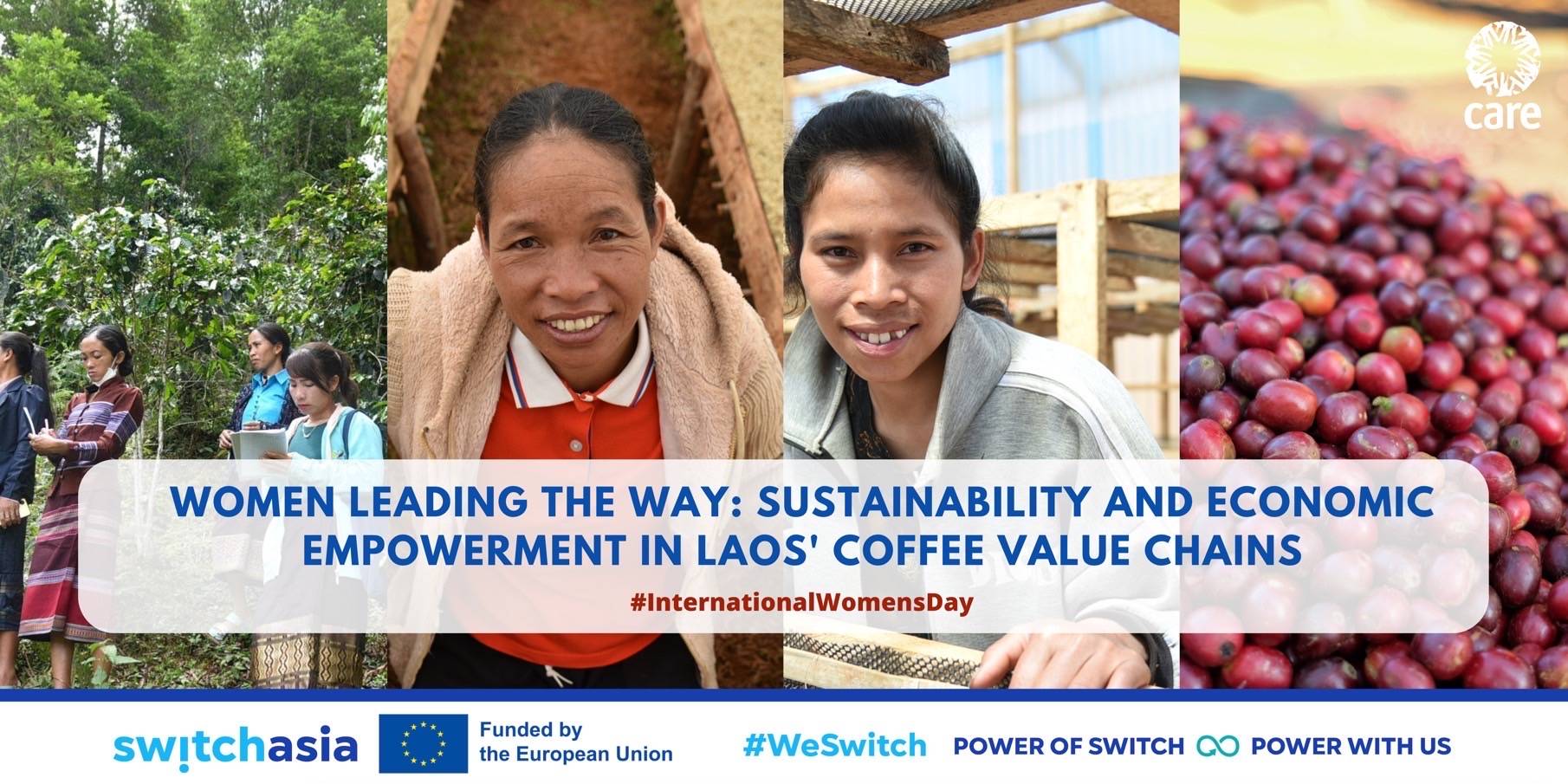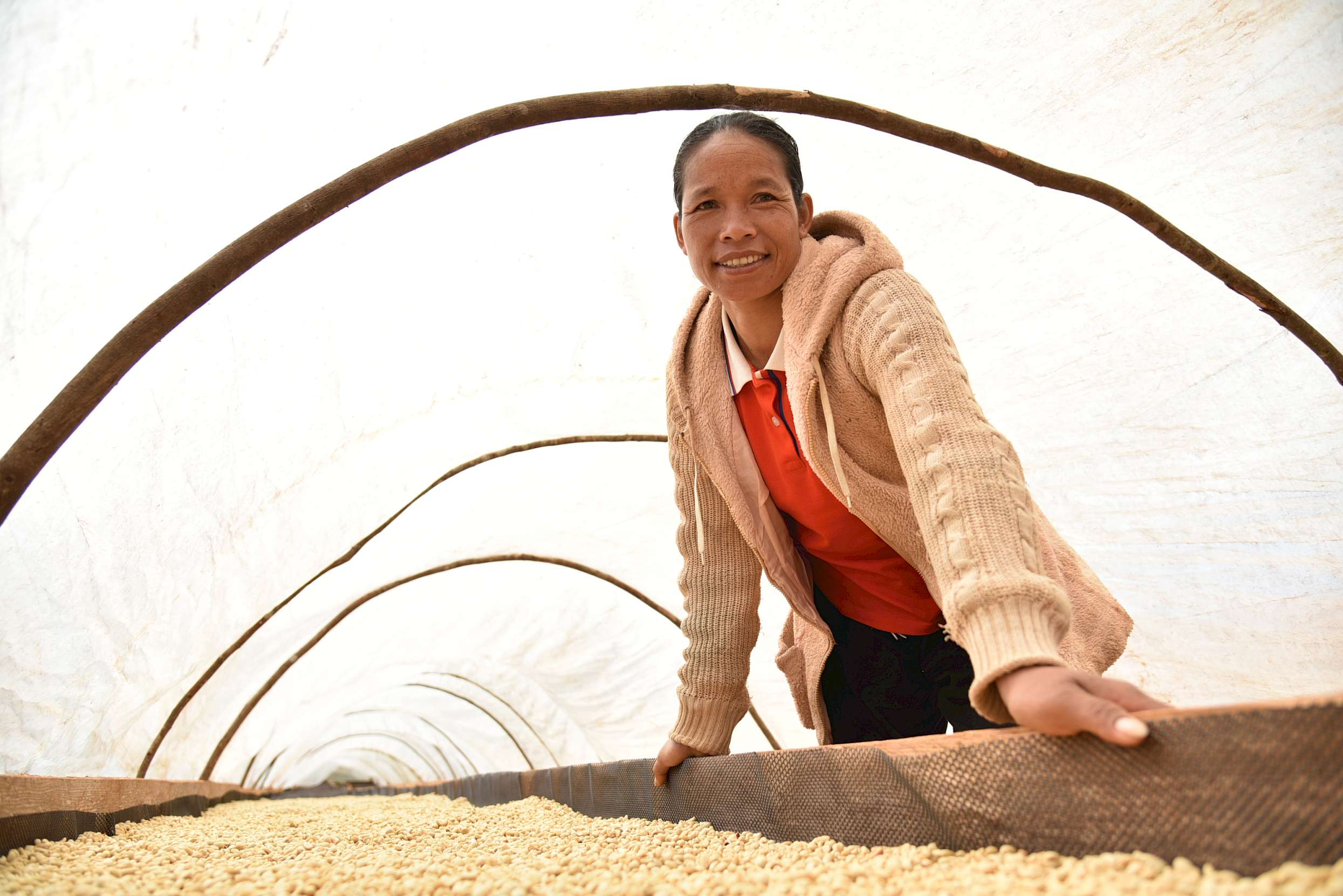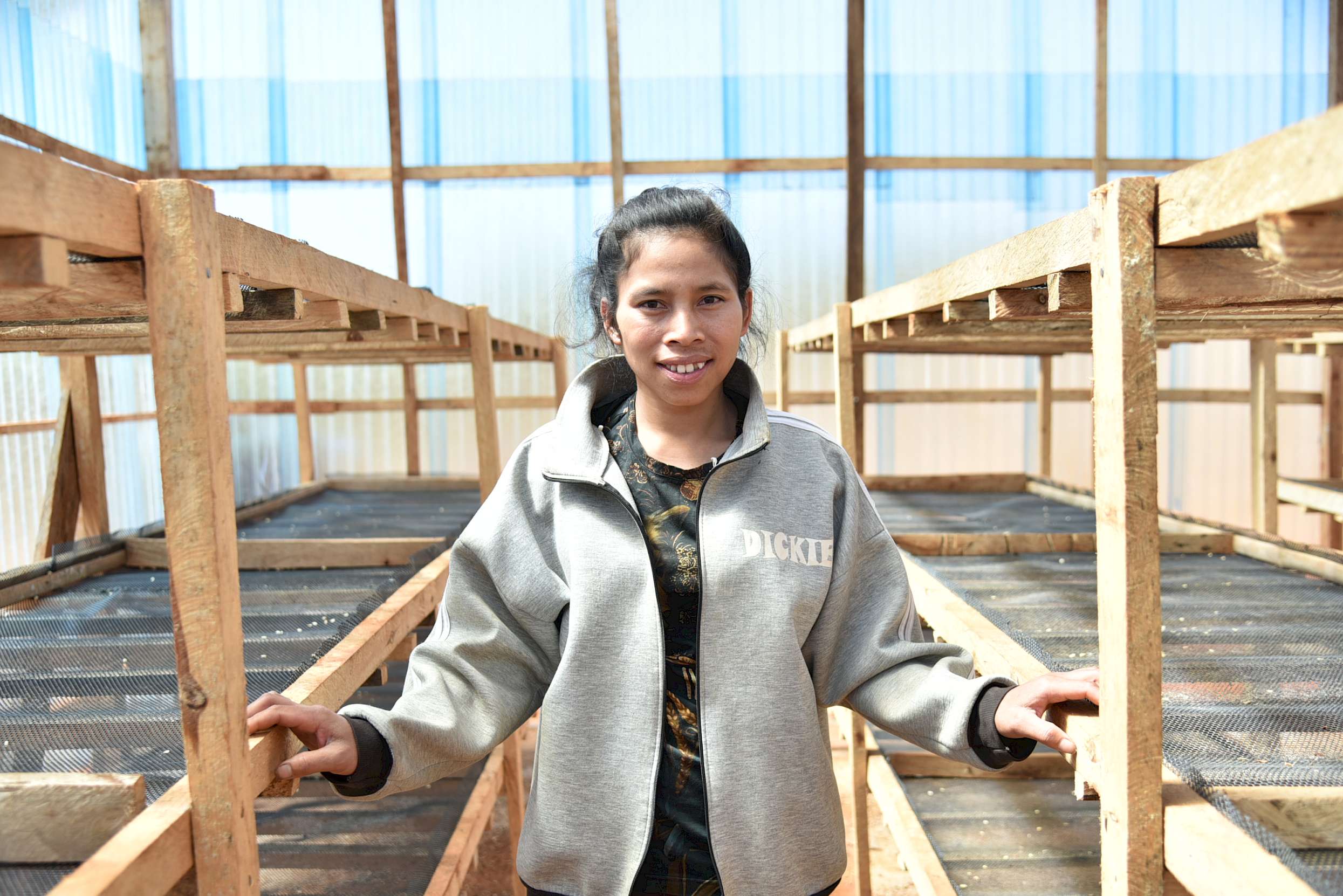
In the lush landscapes of southern Laos, the SuPER WE Coffee Project is opening the path toward a more equitable and sustainable future for women coffee farmers. With Laos positioned as the third largest coffee producer in Southeast Asia, coffee cultivation stands as a vital economic pillar for the nation, supporting the livelihoods of 40,000 families. Despite this, women, who are integral to coffee production, find themselves at a disadvantage, largely confined to the initial stages of the coffee value chain—production and processing. This disparity is especially pronounced among women from ethnic communities, who face significant barriers to climbing higher in the value chain, such as engaging with traders and marketing their products.
The European Union funded SWITCH-Asia SuPER WE Coffee is implemented by CARE International (and consortium partners) with the objective to elevate the economic profitability, efficiency, and sustainability of coffee production by smallholder farmers, thereby harnessing coffee's potential for poverty reduction and bolstering climate change resilience among rural populations. To achieve this, the initiative focuses on several key areas: developing and adopting less polluting, more resource-efficient, and circular products; enabling Micro, Small and Medium Enterprises (MSMEs) to integrate into global greener value and supply chains; assisting MSMEs in minimizing the environmental impact of their production; and enhancing resource efficiency through the adoption of circular economy practices.
This ambitious project aligns with the broader vision of empowering women in Laos, a country that, despite ranking 5th in the 2023 Global Gender Gap Report for equality in economic participation and opportunity, still grapples with significant hurdles to achieving gender equality. These obstacles include entrenched gender norms, limited educational opportunities and political empowerment, which collectively continue to pose barriers to women's full and equal participation in public life.
By fostering an environment that supports women in meaningful decision-making and control over their futures, the SuPER WE Coffee project not only aims to address immediate economic disparities but also to instigate structural change. This endeavour seeks to dismantle the barriers that have historically held women back, enabling them to thrive as equal participants in the coffee sector and beyond.
Transformation Through Coffee Cultivation

Chandy Xayyaboun is a 42 year old farmer living in Dak Yoi Village, Dak Cheung District, Sekong Province. Before engaging with the SuPER WE Coffee project, she was a very small-scale coffee farmer. She did not have enough equipment for coffee cultivation, so the coffee trees she planted were less productive; they were not producing enough fruit to sustain the business. When collecting coffee for sale, the green or red cherries that contain the coffee bean would get mixed together, resulting in lower quality coffee. After drying the cherries until they were black, she sold them to traders who paid a very low price of 15,000 kip per basket. Without a deeper understanding of quality coffee production, Chandy's income was at the mercy of the traders and whatever price they set. By selling the cherries without extracting the beans, she was not earning a substantial income.
When Chandy discovered that the SuPER WE Coffee Project had arrived to assist the villagers in enhancing their coffee cultivation, she decided to join the coffee producer group of Dak Yoi village along with 10 other families. Following the project's support for local farmers, Chandy witnessed a significant improvement. She learned techniques for growing coffee, proper farm maintenance, and the process of transforming coffee from red cherry to white bean. Additionally, Chandy had the chance to participate in a study tour of the Paksong District in Champasak Province to learn about quality coffee and its production process.
I enjoy learning, which is why I frequently participate in training programmes. This eagerness to develop myself led to my selection as the accountant for the coffee production group. This role has significantly improved the well-being of my family and me. Moving forward, I plan to continue engaging in training sessions with the project, she explained.
Through the project, Chandy learned that selling processed white beans would earn her more money than selling dried cherries. As a result, her farm now produces better quality white coffee beans in greater quantities, allowing her to sell them at a higher price. This increased income has significantly improved her family's life. She was able to purchase two motorcycles for herself and her husband, as well as a small motorized vehicle for transporting coffee. She now has enough money to send her children to school and still has funds left over to assist with other expenses for the rest of the family unit.

Gethsamone, a 27-year-old mother of two from Dakrai Village in Dak Cheung District, Sekong Province, has long balanced the demanding roles of a coffee farmer and caregiver. Besides her primary occupation in coffee cultivation, she diversifies her income by farming additional produce. Within her local coffee group, she holds the crucial position of accountant.
For four years, Gethsamone shifted her focus from coffee to vegetables and rice, confronting natural disasters like floods, droughts, and pest invasions that devastated her rice crops. The harvests were barely sufficient to feed her family. Conversations with her husband about the lucrative potential of coffee, inspired by observing the success of neighbouring families, eventually led them to resume coffee farming.
Tragedy struck in early 2022 when Gethsamone's husband passed away, leaving her to navigate the challenges of running their coffee plantation and supporting her aging parents and young children alone. The burden of harvesting coffee with limited help significantly impacted her income.
However, Gethsamone's fortunes began to change with the arrival of the SuPER WE Coffee Project in her village. Eager for the opportunity to enhance her coffee cultivation knowledge and connect with a support network, she joined the village coffee producer group. The project equipped her with the necessary tools, coffee seedlings, and training in advanced coffee planting and processing techniques, reinvigorating her and her fellow group members' passion for coffee production.
Through the project, my life has dramatically transformed. Selling white coffee at a higher price has increased my income. Coffee cultivation is demanding, but it's essential for my family's financial stability, she reflects.
Despite the challenges, Gethsamone remains a resilient figure, single-handedly managing her coffee harvests with pride and determination.
The transformation these two women and many others underwent, from struggling coffee farmers to examples of success and empowerment within their community capture the project's impact. Through its focused objectives and comprehensive approach, the SuPER WE Coffee Project is not just improving the coffee sector in Laos; it is building a foundation for lasting change, empowering women to shape a more prosperous and equitable future for themselves and their communities.
Photo credits: Koungming (Tom) Changleuxai, Senior Communications Officer, Care International in Lao PDR


